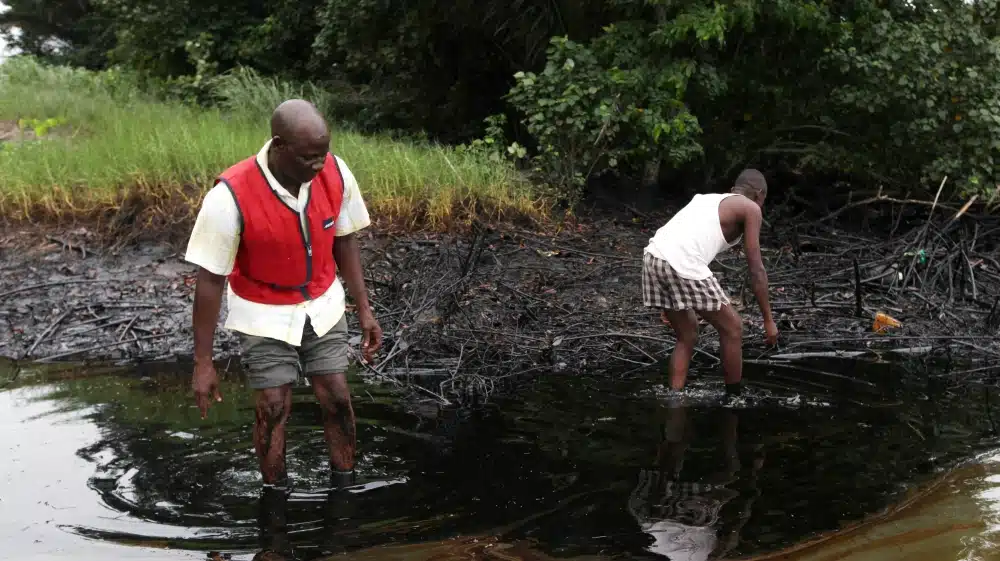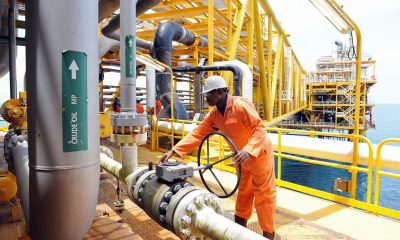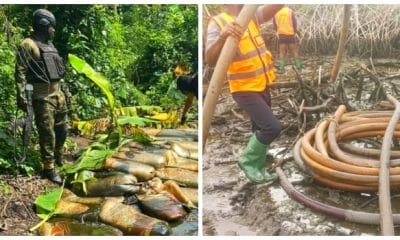Nigeria News
Shell To Go On Trial UK For Devastating Oil Pollution In Nigeria

London – In a significant development for environmental justice, the High Court has ruled that two Nigerian communities can proceed with their landmark human rights claims against Shell over severe oil pollution in the Niger Delta. This decision marks a pivotal moment in a protracted eight-year legal battle, signaling a potential shift in holding multinational corporations accountable for environmental damage abroad.
The Ogale and Bille communities, comprising around 13,000 Nigerian fishermen and farmers, allege that Shell’s operations have catastrophically polluted their environment, gravely impacting their livelihoods and health. They argue that Shell has breached their right to a clean environment as guaranteed under Nigerian constitutional law and the African Charter.
Matthew Renshaw, a partner at Leigh Day solicitors representing the communities, remarked, “This ruling is a significant moment in the eight-year battle by the Ogale and Bille communities to get Shell to take responsibility for the oil pollution that has blighted their land.” He highlighted Shell’s repeated attempts to use technicalities to delay the claims, asserting that the ruling now paves the way for a trial to hear the communities’ demands for a comprehensive clean-up and compensation.
Kavita Modi, a senior associate at Leigh Day, added, “Our clients have been living with the impacts of a devastated environment and polluted drinking water for all this time, whilst Shell tries at every turn to delay their claims.” She expressed hope that the decision brings the communities closer to obtaining justice.
The High Court’s decision allows for the case to proceed to trial, focusing on whether Shell’s parent company in London, as well as its Nigerian subsidiary SPDC, are legally responsible for the harm caused. The trial is expected to hear extensive arguments and evidence related to the environmental damage and its impact on the Ogale and Bille communities.
Shell has maintained its stance, arguing that it bears no legal responsibility for the chronic pollution in the Niger Delta. The company attributes the majority of spills to industrial-scale oil theft and criminal activities. However, this defense has not deterred the progression of the case.
This case follows a landmark ruling by the UK Supreme Court in February 2021, which affirmed that Shell plc, the UK parent company, could be held legally responsible for pollution caused by its Nigerian subsidiary. The ruling set a precedent in corporate accountability, especially concerning the liability of UK-based parent companies for the actions of their foreign subsidiaries.
The upcoming trial, expected in 2024, is anticipated to be a watershed moment in the global fight for environmental justice and corporate accountability. It underscores the increasing scrutiny multinational companies face for their environmental practices, particularly in vulnerable regions like the Niger Delta.
The Ogale and Bille communities’ pursuit of justice against Shell, a British oil and gas giant, extends beyond environmental remediation. They seek acknowledgment and compensation for the destruction of their traditional way of life, in a region where farming and fishing have been decimated by pollution. This case, thus, represents not only a legal battle but also a struggle for the rights and dignity of communities adversely affected by corporate activities.












